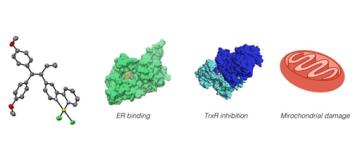
Workshop | Inquiry based learning: come progettare un’efficace didattica teorico-pratica con gli studenti
Il team di ABILiTY3 organizza un workshop in presenza sulla didattica di laboratorio. Si lavorerà sul metodo inquisitivo e sulla costruzione di linee-guida per ottimizzare il lavoro pratico in laboratorio. Il workshop si terrà il 6 settembre 2023, dalle 14 alle 18, presso la meeting room del piano








